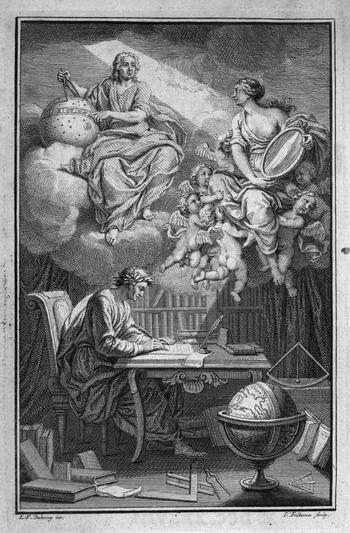Subproject 08
Sur des pensers nouveaux faisons des vers antiques. On the Relationship of Enlightenment and Classicism in 18th-century French and Italian Literature
Prof. Dr. Klaus W. Hempfer (Institute of Romance Languages and Literatures, Freie Universität Berlin)
The subproject investigates the relationship between Classicism and Enlightenment in French (and, in the project’s final phase, Italian) 18th-century literature, describing the frequently assumed opposition of old and new more adequately in terms of a complex entanglement, where the status of ‘old’ and ‘new’ is not attributed a priori, but needs explication in the first place. Thus the notion of a homogenous épistémè in the sense of Foucault’s archaeology of discourse is challenged. On the other hand, approaches to the periodisation of ‘Enlightenment’ that are characterised by a one-sided emphasis on a break with anterior traditions are called into question, too – approaches which, in the field of literature, tend to marginalise classicist traditions by focusing on prose genres with little or no codification.
The project aims to characterise the novelty of Enlightenment literature not by focusing on individual content, but rather, by establishing an epistemological ‘foundation’ that is to be reconstructed via readings of pertinent primary texts, taking account of existing research on the topic. By analysing poetic and rhetorical textbooks, the project argues that authors who make recourse to this ‘foundation’ can remain bound to a ‘doctrine classique’ and its basic rules, and that this ‘doctrine’ continues to determine the poetological discourse until well into the 18th century. Voltaire’s œuvre has proven to be a case in point: what is epistemically ‘new’ is conveyed in a way that is clearly oriented towards the norms of Classicism. The case studies covering a broad generic spectrum from tragedy via epic to smaller poetic works show that this is not an isolated phenomenon – quite the contrary, what is in evidence here is a broadly-based agenda which is reflected in poetological considerations, and which in turn exerts its influence on the poetological conceptions of contemporaries such as Marmontel.
In the project’s final phase, the scope of inquiry will be expanded to include Italian literature in order to ascertain whether similar entanglements of Classicism and Enlightenment can be diagnosed in this context, too, especially in the works of Parini. Considering the different circumstances in Italy (where 18th-century Classicism does not immediately follow a classical phase), and Parini’s specific role will allow to ascertain whether similar patterns are at work, and to what extent concrete connections do in fact exist (for example when Parini refers to French poetic textbooks). On the one hand, this will allow the project to situate Parini within the context of the European Enlightenment. On the other hand, his specific combination of classicist literature and ‘new’ content will be rendered accessible to research. In this sense, the subproject will also contribute to the ongoing debate on whether ‘Enlightenment’ is to be considered as a single entity, or whether it can only be properly understood in its various national manifestations.
